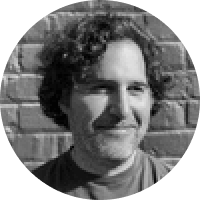Dispatches from Day Four of the Operational Analytics Conference
The single-most overlooked thing about starting a business is how hard it is to hire great people. It’s not just finding those great people, it’s getting them fired up to come work for you, evaluating skills, personality and potential in just a few hours. Hiring is really, really hard, especially when hiring for data roles.
It’s no surprise then, that our session about hiring for, building and developing modern data teams ended up being wide-ranging and very illuminating. The kickoff session for the fourth day of the Operational Analytics Conference featured
- Rachel Bradley-Haas- Co-founder of Big Time Data
- Joey Freund - Data Development Manager at Shopify
- Garegin Ordyan- Director of Analytics at Fivetran
- Emilie Schario - Senior Engineering Manager at Netlify
- Jeff Sloan - Data Product Manager for Treatwell
As anyone who works in data can tell you, demand to fill these highly specialized jobs far outstrips the supply of available talent. We started the discussion getting our panel’s point of view about a common solution to that problem – hiring junior team members or new graduates.
Jeff Sloan: How do you think about hiring new graduates or junior individuals onto a data team? What do you look for and what gaps do you typically see in their preexisting experience, whether that’s academic or professional, that they have to overcome once they join the data team?
Rachel Bradley-Haas: I would actually flip the question on its head a little bit and say that, if we think about what the hardest part of data is, it's not actually writing code. You take anyone and spend a couple of weeks patiently teaching them and you can get someone to a pretty strong place in SQL, they can build DBT models and be impactful. The much harder part of data is dealing with people. And so really looking for those soft skills and then being willing to teach those technical skills makes a big difference. And I think that means that data, possibly more than other areas, could be a real opportunity for people who are taking a second career because a lot of those soft skills are more transferable than other technical specific skills. The other thing is this idea that you need a college degree to be good at data, which I think is very wrong. The best analytics engineer I've ever worked with didn't have a college degree. On the other hand, there's someone on my team who has a PhD. So I don't think there's an academic prerequisite. I think all our teams would be really benefited if we remove that from our list of requirements.
Emilie Schario: I totally agree. I really value people who have experience of being on the other end and almost being that customer or understanding when somebody is asking for something that seems high priority or urgent or a bit random, to be able to delve in and ask the right questions to figure out actually what they are asking for. That’s really, really difficult to get without experience. And I think you're right, teaching technical skills is much easier to teach than business context and understanding. So I definitely value that. One typical, well, actually no, maybe atypical, but super valuable, skillset set I've seen recently is I've heard of a few ex-teachers coming onto teams and have been brilliant.
Sarah Vigrass: I think the other thing that I love to look for, and it might just be because of my industrial background and interest in the supply chain, is how someone views data mapping to processes and what's going on in the business. If someone is unable to understand how raw pieces of data can be enriched and combined together and map to a business process or value, or understand what it could mean to the business, then they're not going to do well in a data world. So understanding, "Hey, this data came from this source. When you combine it with these other things, then you can output it and derive value from it." Being able to understand how all those things interconnect and create value is so important. It doesn't mean that you have to be able to do that in SQL, but understanding how everything flows through and what that output is needed is critical in my mind.
This was just the opening of the panel, which ranged through a lot of other topics including how to find the right people and meet them where they are, what questions to ask in an interview, and how to encourage career progression.
Listen to the entire discussion below and be sure to check out the other sessions as well.


















